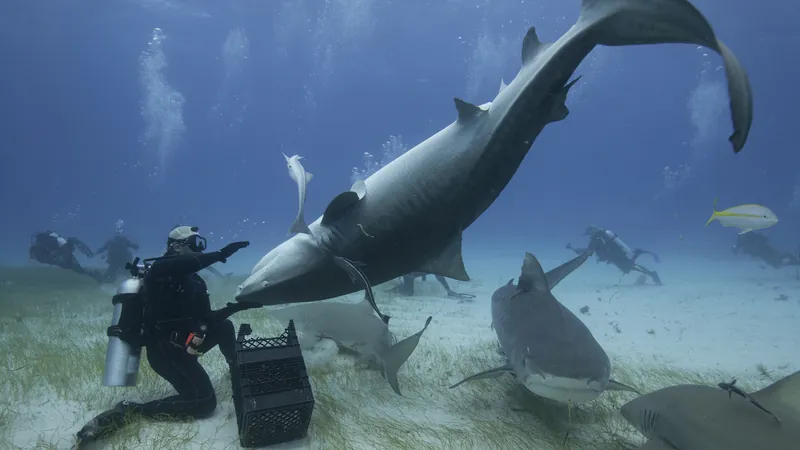
The Mysterious Freeze: Why Sharks Go Trancelike When Upside Down
2025-07-19
Author: Charlotte
The Bizarre Phenomenon of Tonic Immobility
Sharks are known as some of the ocean's fiercest hunters, yet you may be surprised to learn that flipping them upside down can render them as helpless as a bug on its back. This peculiar reaction is called tonic immobility — a trance-like state where sharks appear hypnotized.
"It's as close to hypnotizing a shark as you can get!" says Joel Gayford, a marine ecology doctoral candidate at James Cook University. In this state, the shark completely stops swimming, with only slow, rhythmic breathing.
Why Do Sharks Enter This Trance?
So what exactly happens during tonic immobility? Researchers like Abraham Miranda-Páez from Pelagios Kakunjá explain that the shark experiences reduced responses to stimuli, along with lower heart rates and blood pressure, as well as diminished pain sensitivity.
This unusual freeze response occurs in species such as great whites, lemon sharks, and gray nurse sharks. It can be triggered by flipping the shark or by gently stimulating its snout, which is packed with electroreceptors.
A Helper for Scientists?
While this trance might sound peculiar, it serves a useful purpose for researchers. It allows them to safely conduct studies without causing undue stress to the animal. "We can make a small incision to insert an acoustic tag quickly and humanely," explains Jillian Morris, founder of a nonprofit dedicated to educating kids about sharks.
Survival or Just an Evolutionary Quirk?
But why did sharks evolve tonic immobility? Various theories abound. A 2023 study suggests it could be a defensive mechanism, similar to how some animals feign death to escape danger. However, Gayford argues that this theory doesn’t hold up well for sharks, as their natural predators often wouldn’t be deterred by a motionless target.
Interestingly, tonic immobility also occurs during mating rituals. Male sharks flip females upside down before copulation, causing them to enter this state. However, it’s not a clear survival tactic, as male sharks experience the same reaction.
The Great Debate Among Scientists
A 2025 study posits that tonic immobility might have no real purpose and is simply an evolutionary remnant. Many shark species that lack this response may have lost it for practical reasons, particularly smaller species that need to navigate tight spaces.
For now, scientists are still piecing together the enigma of tonic immobility. With numerous theories but no definitive answers, the true purpose of this bizarre phenomenon remains a mystery, captivating marine enthusiasts and researchers alike.









 Brasil (PT)
Brasil (PT)
 Canada (EN)
Canada (EN)
 Chile (ES)
Chile (ES)
 Česko (CS)
Česko (CS)
 대한민국 (KO)
대한민국 (KO)
 España (ES)
España (ES)
 France (FR)
France (FR)
 Hong Kong (EN)
Hong Kong (EN)
 Italia (IT)
Italia (IT)
 日本 (JA)
日本 (JA)
 Magyarország (HU)
Magyarország (HU)
 Norge (NO)
Norge (NO)
 Polska (PL)
Polska (PL)
 Schweiz (DE)
Schweiz (DE)
 Singapore (EN)
Singapore (EN)
 Sverige (SV)
Sverige (SV)
 Suomi (FI)
Suomi (FI)
 Türkiye (TR)
Türkiye (TR)
 الإمارات العربية المتحدة (AR)
الإمارات العربية المتحدة (AR)